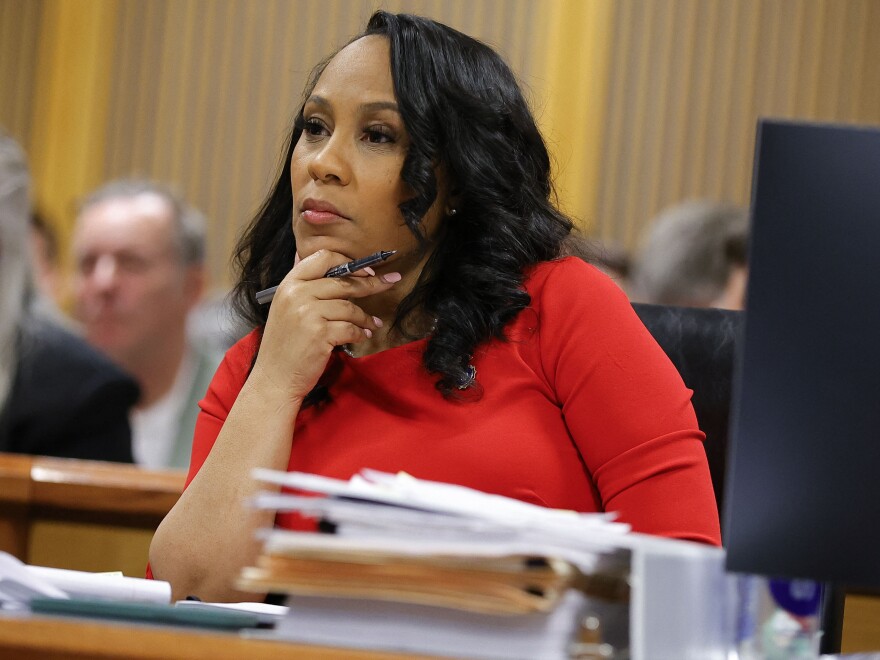Updated May 08, 2024 at 11:29 AM ET
ATLANTA — The Georgia Court of Appeals has granted oral arguments after former President Donald Trump appealed a decision allowing Fulton County District Attorney Fani Willis to stay on the criminal case involving Trump and others.
The court's decision likely further diminishes chances that the Georgia election interference case goes to trial this year.
In March, Fulton Judge Scott McAfee allowed Willis to remain on the case — if the special prosecutor she had been in a romantic relationship with resigned. That special prosecutor, Nathan Wade, resigned.
Trump and other defendants who first raised allegations of a conflict of interest appealed McAfee's decision.
The appeals court must now hear and rule on the question within two terms, or about six months. According to the court, cases docketed in the current term must be decided by Nov. 1 and motions to reconsider must be adjudicated by Nov. 18.
McAfee is unlikely to set a trial date before that time, meaning the case almost certainly remains unresolved before the November election, though pretrial hearings are expected to continue.
"I think it effectively ends the ability of this case to get to trial this year," says Atlanta attorney Jen Jordan, a former Democratic candidate for Georgia attorney general.
Jordan says she does not believe the appeals court is signaling they think McAfee's decision was wrong, but acknowledging the stakes of making sure it's right sooner rather than later.
"This is one of the most significant cases in the history of this country and definitely in this state," Jordan says. "Let's say Judge McAfee's decision not to disqualify the district attorney is wrong and you get all the way to the verdict [in the trial], and it goes up to the Court of Appeals to be reviewed and they say, 'Wait a second, there was a mistake in this very first step and you have to redo everything.' That is not in the interest of justice, due process and making sure people believe the system is working fairly."
Steve Sadow, Trump's lead counsel in Georgia, wrote in a statement, "President Trump looks forward to presenting interlocutory arguments to the Georgia Court of Appeals as to why the case should be dismissed and Fulton County DA Willis should be disqualified for her misconduct in this unjustified, unwarranted political persecution."
A spokesperson for the district attorney's office declined to comment.
Prosecutors can ask for the court to hear the appeal on an expedited basis, but the likelihood of that request being granted depends on which three judges comprise the panel assigned to the case.
"With a case of this importance, you could see that happen," Jordan says. "But more likely than not, there is no way this thing gets tried before the election. Of course, I would like for it to happen more quickly, but at the end of the day, I understand this is how the process works. It's not like how it is on TV. It takes time and consideration."
Trump's also facing federal charges for attempting to overturn his 2020 election loss and for mishandling classified documents. Both of those cases have also been delayed.
On Tuesday, the Florida federal judge overseeing the classified documents case — whom Trump appointed — delayed the case indefinitely.
And the federal election interference case remains on hold as the U.S. Supreme Court weighs Trump's claims of presidential immunity. Justices held oral arguments late last month.
Copyright 2024 WABE 90.1



